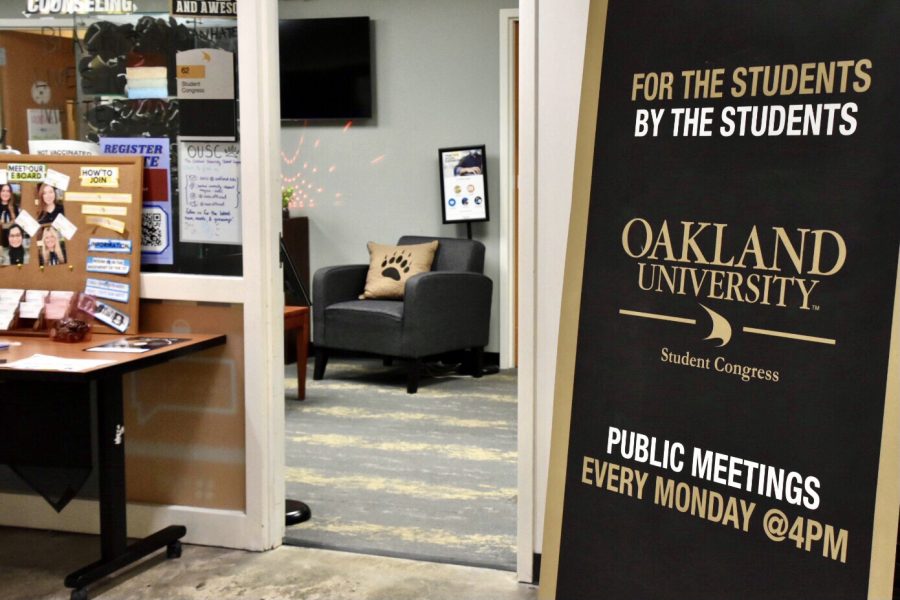OUSC launches Raise The Wage Campaign, advocates for $15 minimum wage
Oakland University Student Congress is calling on administration to raise the minimum wage for campus employees.
Oakland University Student Congress (OUSC) is calling on OU administration to raise the minimum wage for campus employees — and they’re asking students to help convince the university of the necessity for this change.
On August 9, OUSC’s official Instagram account announced the launch of their Raise The Wage campaign, asking students to respond to a Google Form detailing what a $15 wage would mean to them.
The campaign comes on the heels of a resolution passed by the congress on June 28, 2021, outlining their proposed plan for raising the wage to $15 an hour by the 2025-26 academic year. C.R. 22-05 recommends an increase from where the minimum wage sits at $9.87 to $11 an hour as soon as possible, followed by an increase of $1 per hour each academic year until the goal is met.
From there, it’s suggested that each 1% increase in tuition spur a 0.5% increase in the wage on a permanent basis, with the organization noting they do not recommend the typical tuition increase rate of about 4% annually be exceeded.
Jeremy Johnson, OUSC’s Steering Chair, was the initial sponsor of C.R. 22-05. His motivation to present this bill stemmed from concern for student finances, acknowledging that — when adjusted for inflation — the cost of college has increased by nearly 34% since 2010, while the minimum wage has only increased by about 8% in Michigan over the same period.
“Throughout the last few decades the cost of college has increased astronomically, and the wages paid to student workers haven’t really tracked with that at all,” Johnson said. “One of the best ways we can help students’ financial situations is [to] pay them more for the work they’re doing, because realistically their work is the reason that OU stays afloat.”
OUSC’s Legislative Affairs Director Jordan Tolbert reasons that this initiative is in the best interest of the entire OU community.
“We should care about the way that others experience their time on campus, and [care] about [others] having the best experience they can at our school,” Tolbert said. “One of the ways to do that would be to give better wages to our workers.”
The bill contains several other provisions in addition to those aforementioned, including a call to establish a Fair Compensation Committee to monitor the continued adjustment of the wage with tuition raises, a recommendation that departments with budgets that can’t meet the raised wage be subsidized by the university until they can, and a request for OU to not conduct business with any outside organizations which compensate their employees less than the wage outlined in the plan.
“I would argue that this resolution is a systemic solution to a big systemic problem of students not being able to afford college or taking out debt for the rest of their life,” Johnson said. “I think this plan is solid, it’s very implementable, and it would be a way for OU to tangibly improve lives for all of its students.”
The Raise The Wage campaign recently launched by the organization aims to convince OU administration of the necessity for this wage increase through student testimonials.
“Everyone’s experience is different, but at the same time very connected,” Tolbert said. “To hear each individual, unique experience might help administration better understand the struggle we’re going through.”
From student workers themselves to any concerned party with loved ones who work for the minimum wage, the congress encourages every person in the campus community who cares about this issue to head to their Google Form — available at the Flowpage in their Instagram bio — and share what a $15 wage would mean to them.
“As our world works, the only way to ever make change is by mobilizing students or activists that care deeply about issues and raising awareness about [them],” Johnson said. “OUSC being the body representing the students, we’re calling on OU to raise the wage, and we want every student to join us in that pursuit.”








